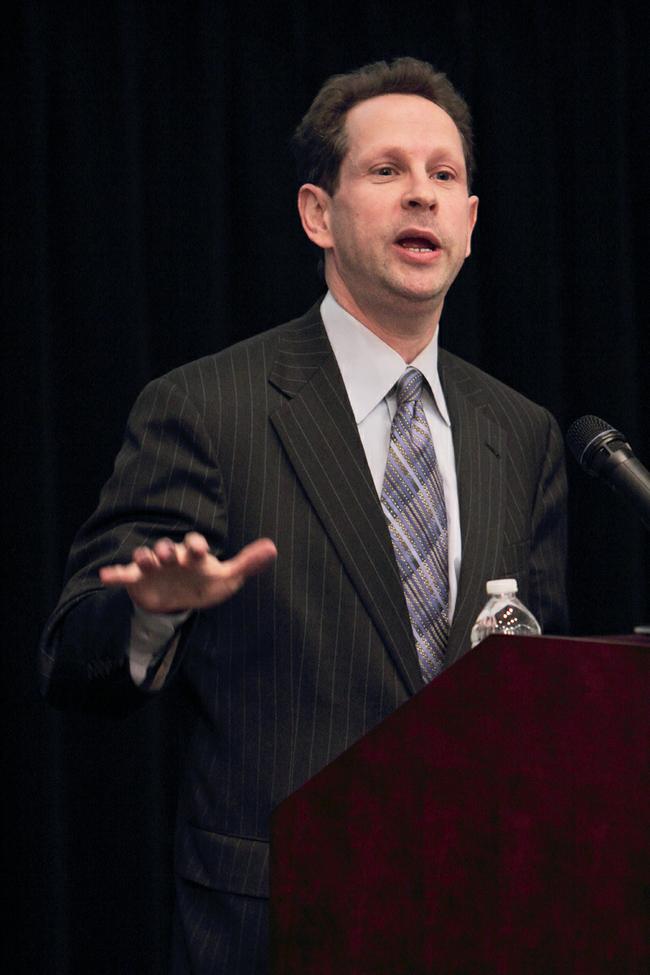The inspector general of the Securities and Exchange Commission spoke Thursday at MU about his investigations of the Bernard Madoff Ponzi scheme and the failure of Bear Stearns.
H. David Kotz spoke as part of the School of Accountancy’s Dawdy Speaker Series, which focuses on forensic accounting and fraud examination.
MU alumnus Jay Dawdy sponsors the series, which he started with School of Accountancy Director Vairam Arunachalam. He said the series has brought in five high-profile speakers, including Ken Feinberg, head of the BP claim fund and Missouri Attorney General Chris Koster.
“We’ve got good name recognition with the series,” Dawdy said.
In his speech, Kotz said the SEC repeatedly failed to detect the Bernard Madoff Ponzi scheme and the failure of Bear Stearns.
Kotz said many believed Madoff was too smart for SEC examiners to detect the scheme.
“The prevailing opinion was that he was this genius,” he said. “The truth is, Madoff was sloppy. He contradicted himself.”
Kotz said the SEC examiners lacked skills and competence. They were thrilled to be in the same room as Madoff, and at least one examiner took a picture with him.
“They were pretty much right out of school,” he said.
The SEC ignored red flags in Madoff’s returns and failed to follow through with investigations several times. When the examiners asked Madoff why he always had spot-on timing when buying and selling stocks, he told them he used his gut, feeling vibrations on the trading room floor.
“Their response?” Kotz said. “‘Works for me!’”
Kotz said discovering a Ponzi scheme takes one phone call.
“They never made that phone call,” he said.
Kotz spent nine months on his report investigating the SEC’s actions. He and his staff interviewed 122 people and read 3.7 million e-mails from current and former employees, including one who married Madoff’s niece.
There is no evidence that Madoff paid off the SEC, Kotz said. There was no need for him to do so, since the SEC was not investigating him properly anyway.
Kotz also spoke about his investigation of the SEC’s failure to properly oversee Bear Stearns, which collapsed a few months after he became inspector general in late 2007.
“We concluded that the SEC became aware of numerous red flags before the Bear Stearns collapse, but chose to do nothing about it,” he said.
Kotz said the SEC did not exert any influence over Bear Stearns or similar firms that collapsed during the financial crisis.
“The regulators were so cozy with these firms,” he said. “They gave up the ability to do any real regulation.”
Kotz’s investigation of the junior examiners in the Madoff case interested Chris Conant, a graduate student studying regulatory law.
“He recognized that the SEC put a bunch of guppies in a tank with a big shark,” he said.
Dawdy and Arunachalam said the series is valuable for the College of Business.
“It helps the students a great deal,” Arunachalam said.








